Books of the Week: The Weirdest People in the World, Sybille Bedford, Love
New releases from Joseph Henrich, Selina Hastings and Roddy Doyle

A free daily email with the biggest news stories of the day – and the best features from TheWeek.com
You are now subscribed
Your newsletter sign-up was successful
In The Weirdest People in the World Joseph Henrich explores the “psychological strangeness” of the populations of Western societies. Selina Hastings offers a “heroically” researched biography of the German-born English writer Sybille Bedford. And Roddy Doyle’s novel Love follows two old friends on a night-long Dublin pub crawl.
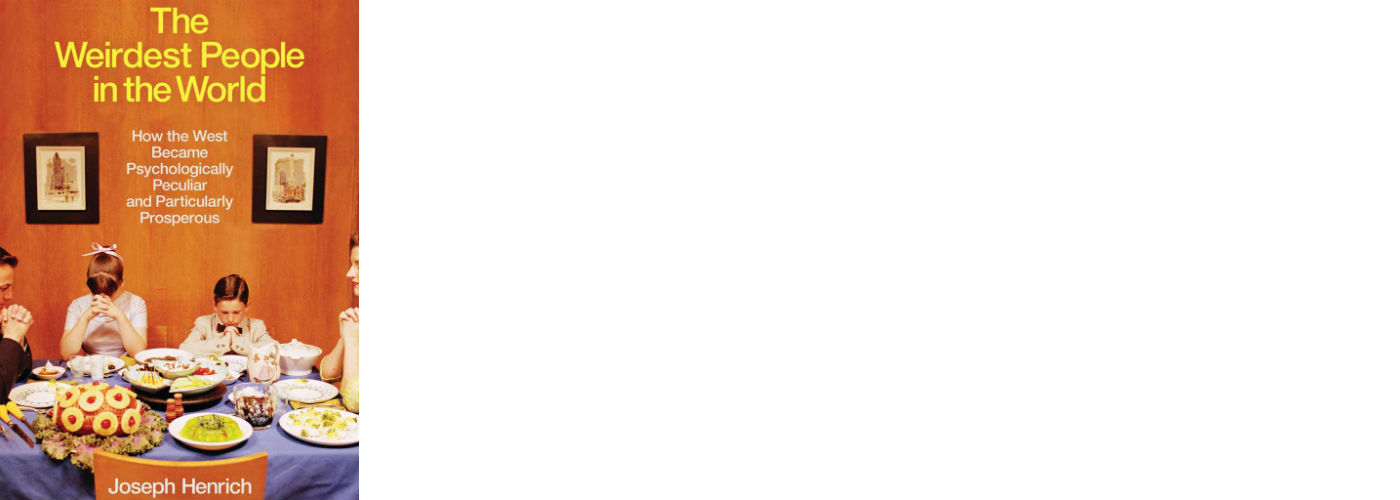
Book of the week The Weirdest People in the World by Joseph Henrich
“For obvious reasons, sweeping theories of Western civilisational dominance aren’t the trendy publishing proposition they once were,” said James Marriott in The Times. Yet the Harvard anthropologist Joseph Henrich has written a very “good one”. His new book proposes that one factor above all others explains the success of Western societies: the “psychological strangeness of their populations”. Westerners, he argues, are “WEIRD”, meaning: “Western, Educated, Industrialised, Rich and Democratic”; but they are also highly unusual in their thinking. Asked to complete the sentence “I am...” ten times, Westerners will typically focus on their personality and accomplishments: “I am smart, I am a lawyer, I am good at crosswords”. Non-Westerners, set the same task, will, on the contrary, emphasise family connections and other allegiances. And this, Henrich claims, points to an all-important difference: the Western mindset is “individualistic, self-obsessed, control-orientated”, whereas the non-Western ones are group-orientated and “holistic”.
The Week
Escape your echo chamber. Get the facts behind the news, plus analysis from multiple perspectives.

Sign up for The Week's Free Newsletters
From our morning news briefing to a weekly Good News Newsletter, get the best of The Week delivered directly to your inbox.
From our morning news briefing to a weekly Good News Newsletter, get the best of The Week delivered directly to your inbox.
What caused Western psychology to take this path? According to Henrich, the decisive shift occurred about 1,500 years ago, when “some unknown early church fathers” outlawed marriage between cousins, said Daniel C. Dennett in The New York Times. This simple rule undermined the foundations of kin-based society, triggering a “cascade of changes”. It caused nuclear families to replace extended ones, science and law to replace lore and custom, and gave rise to such quintessentially Western concepts as rationality and guilt. The Weirdest People in the World is a work of dazzling ambition, comparable in scope to Jared Diamond’s Guns, Germs and Steel. What makes it particularly impressive is that rather than just asserting his arguments, Henrich goes to great pains to back them up with a huge variety of “data points” and statistics.
Actually, Henrich’s thesis can feel a bit too sweeping, said Judith Shulevitz in The Atlantic. In his hurry to explain Western psychology, he gives a “rushed” account of early Christianity. Nor do the broad abstractions he applies to the opposed “WEIRD and non-WEIRD peoples” always seem justified by the evidence. Nonetheless, in its desire to “account for Western distinctiveness while undercutting Western arrogance”, this book marks an important break from the triumphalism of previous accounts of the subject. Henrich offers a “capacious new perspective” on the “wildly problematic legacy of Western domination”.
Allen Lane 704pp £30; The Week Bookshop £23.99 (incl. p&p)
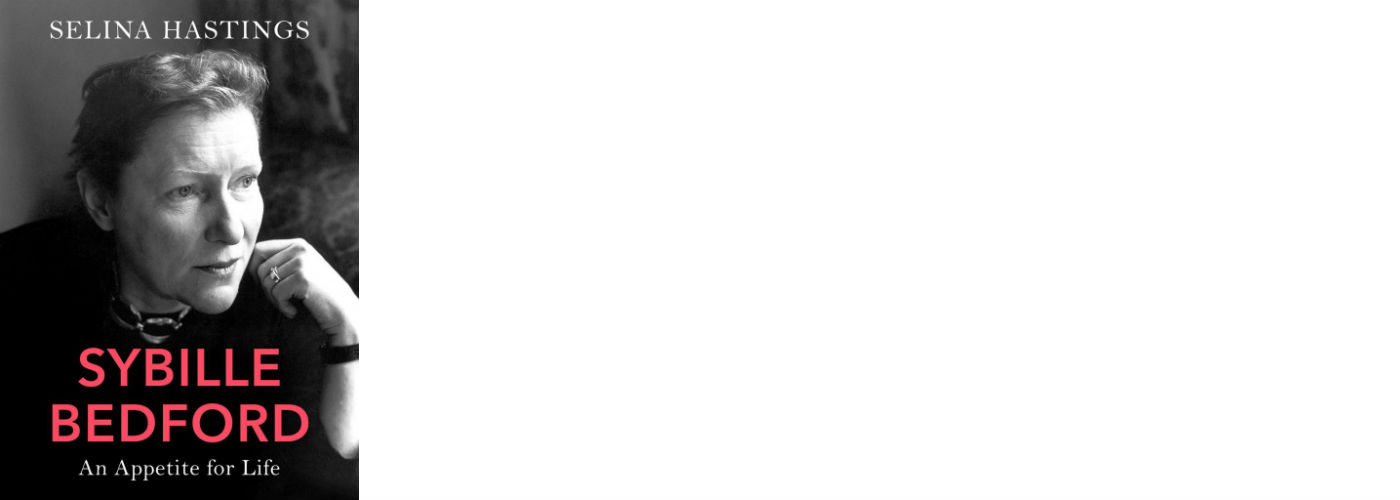
Sybille Bedford by Selina Hastings
A free daily email with the biggest news stories of the day – and the best features from TheWeek.com
This biography of the German-born English writer Sybille Bedford is “total heaven”, said India Knight in The Sunday Times. It is beautifully written and packed with the sort of people “who don’t seem to exist any more”. Two such were Bedford’s parents: a “charming, impoverished Bavarian aristocrat” who collected porcelain and lemurs; and a “raving beauty” who had “affairs all over the place” before descending into morphine addiction. Bedford was born in 1911, and spent her early days at the family schloss near the Black Forest, before joining her mother on the French Riviera, where she fell under the spell of Aldous Huxley. It was during this time that Bedford discovered she was a lesbian: Huxley’s wife, Maria, was one of her first lovers. Over her long, peripatetic life (she died in 2006), Bedford wrote four “wonderful” novels (including A Legacy, her most famous work), while packing in a great deal of “sexual bondings”. Towards the end of her life she confessed: “I wish I’d written more books and spent less time being in love.”
Readers of this biography may well agree, said Julian Evans in The Daily Telegraph. Hastings, quite rightly, is a “punctilious chronicler” of Bedford’s love life – but the endless affairs become “frankly exhausting”. She was not an altogether appealing character, said Sara Wheeler in The Spectator. An appalling snob, she referred to editors as “hirelings” and, though supported financially for many years by the war correspondent Martha Gellhorn, was contemptuous of the American’s low-born ways (“I am sorry to say [Martha] calls it a trat”, she wrote after her friend took her to a Roman trattoria). None of this, though, detracts from the quality of Hastings’s biography. Deft and “heroically” researched, it’s a work that is likely to “stand the brutal test of time”.
Chatto & Windus 432pp £25; The Week Bookshop £19.99
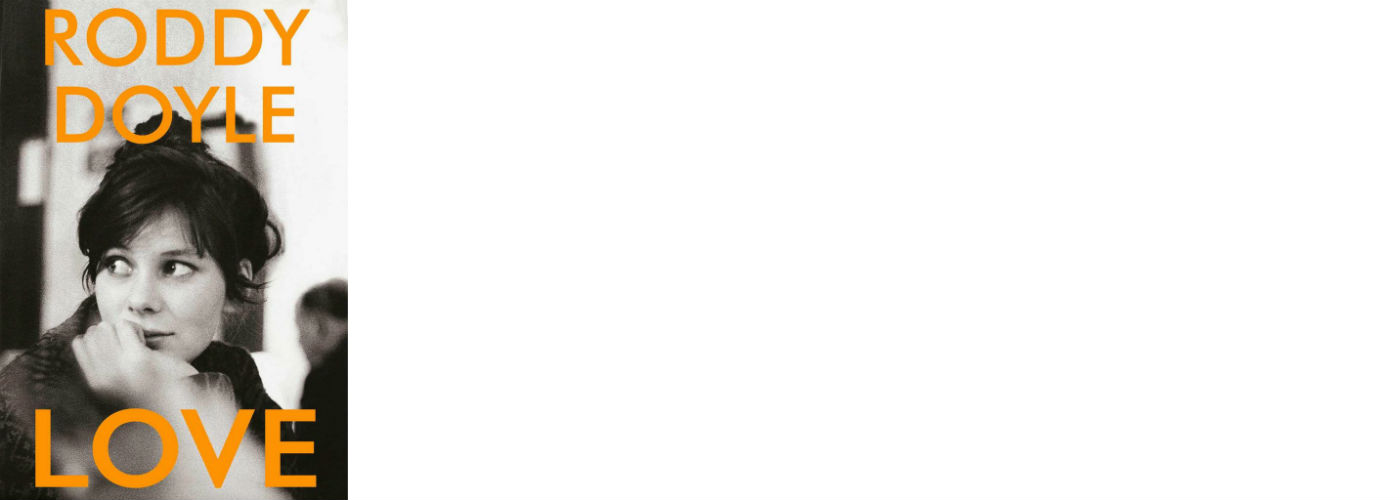
Novel of the week Love by Roddy Doyle
Roddy Doyle’s “boldly titled” 12th novel is “structured around a night-long Dublin pub crawl”, said Hephzibah Anderson in The Observer. Joe and Davy are old friends, both pushing 60. When Davy (who now lives in England) returns to the city to visit his “ailing father”, he meets up with Joe and is “unmoored” by the revelation that his friend has left his wife for one of their “long-ago shared crushes, a cellist named Jessica”. The novel has little plot, but makes up for it in “lushly expletive” banter and “generosity of feeling”.
At times, Doyle seems to be setting himself a “perverse” writing challenge, said Barney Norris in The Guardian: “Can I make a good novel out of a pub bore?” As we watch the two men fall “down the rabbit-hole of drink”, the answer seems likely to be a negative one. But then, near the end, “something changes”, and Doyle throws in a “beautifully handled and powerful reveal”. A novel that had until then often been quite “infuriating” suddenly becomes extraordinarily moving. I closed it “sitting silently”, thinking back “over losses of my own”.
Jonathan Cape 336pp £18.99; The Week Bookshop £14.99
The Week Bookshop
To order these titles or any other book in print, visit theweekbookshop.co.uk, or speak to a bookseller on 020-3176 3835. Opening times: Monday to Saturday 9am-5.30pm and Sunday 10am-4pm.
-
 Minnesota's legal system buckles under Trump's ICE surge
Minnesota's legal system buckles under Trump's ICE surgeIN THE SPOTLIGHT Mass arrests and chaotic administration have pushed Twin Cities courts to the brink as lawyers and judges alike struggle to keep pace with ICE’s activity
-
 Big-time money squabbles: the conflict over California’s proposed billionaire tax
Big-time money squabbles: the conflict over California’s proposed billionaire taxTalking Points Californians worth more than $1.1 billion would pay a one-time 5% tax
-
 ‘The West needs people’
‘The West needs people’Instant Opinion Opinion, comment and editorials of the day
-
 Friendship: 'bromance' comedy starring Paul Rudd and Tim Robinson
Friendship: 'bromance' comedy starring Paul Rudd and Tim RobinsonThe Week Recommends 'Lampooning and embracing' middle-aged male loneliness, this film is 'enjoyable and funny'
-
 The Count of Monte Cristo review: 'indecently spectacular' adaptation
The Count of Monte Cristo review: 'indecently spectacular' adaptationThe Week Recommends Dumas's classic 19th-century novel is once again given new life in this 'fast-moving' film
-
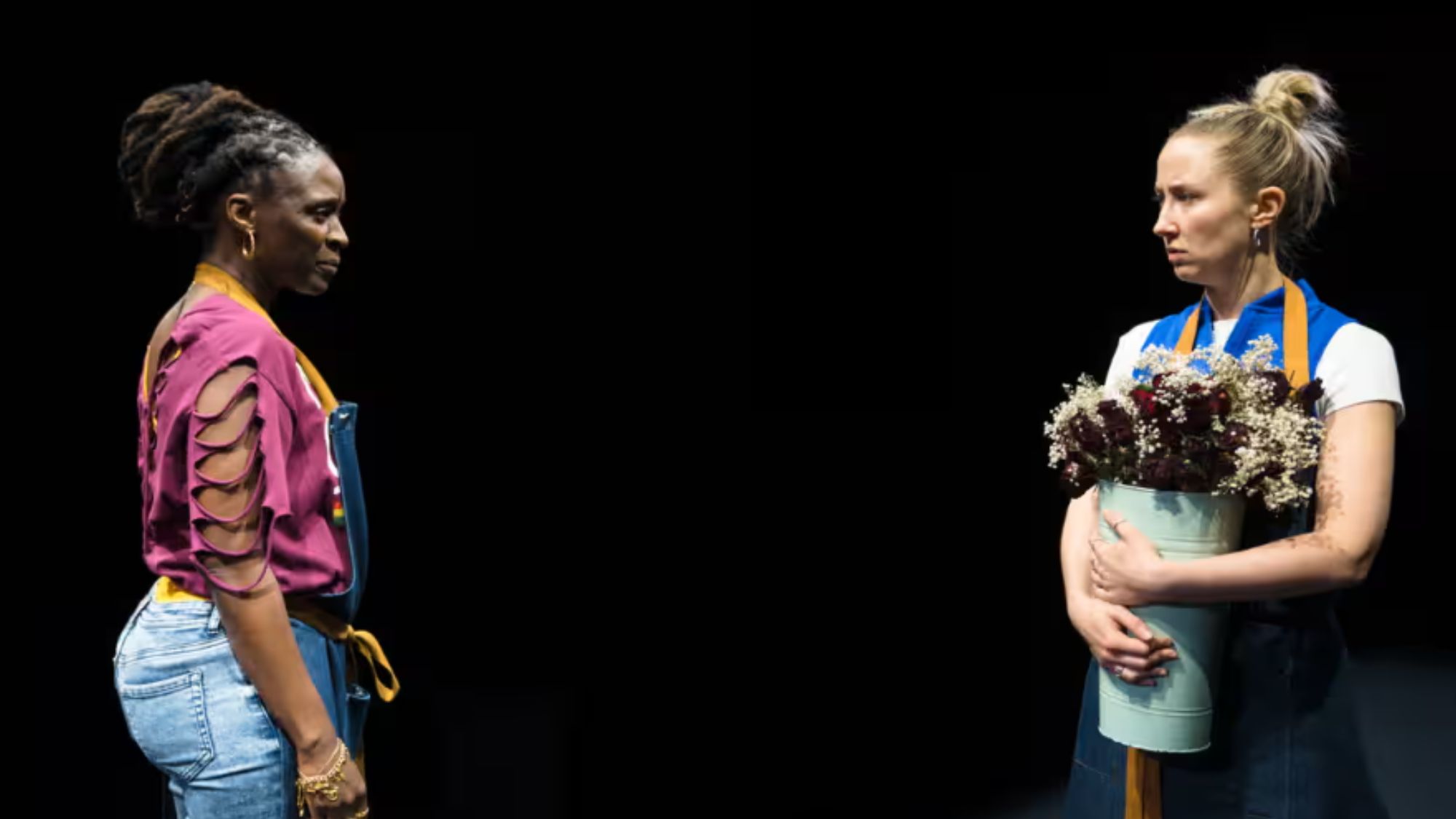 Death of England: Closing Time review – 'bold, brash reflection on racism'
Death of England: Closing Time review – 'bold, brash reflection on racism'The Week Recommends The final part of this trilogy deftly explores rising political tensions across the country
-
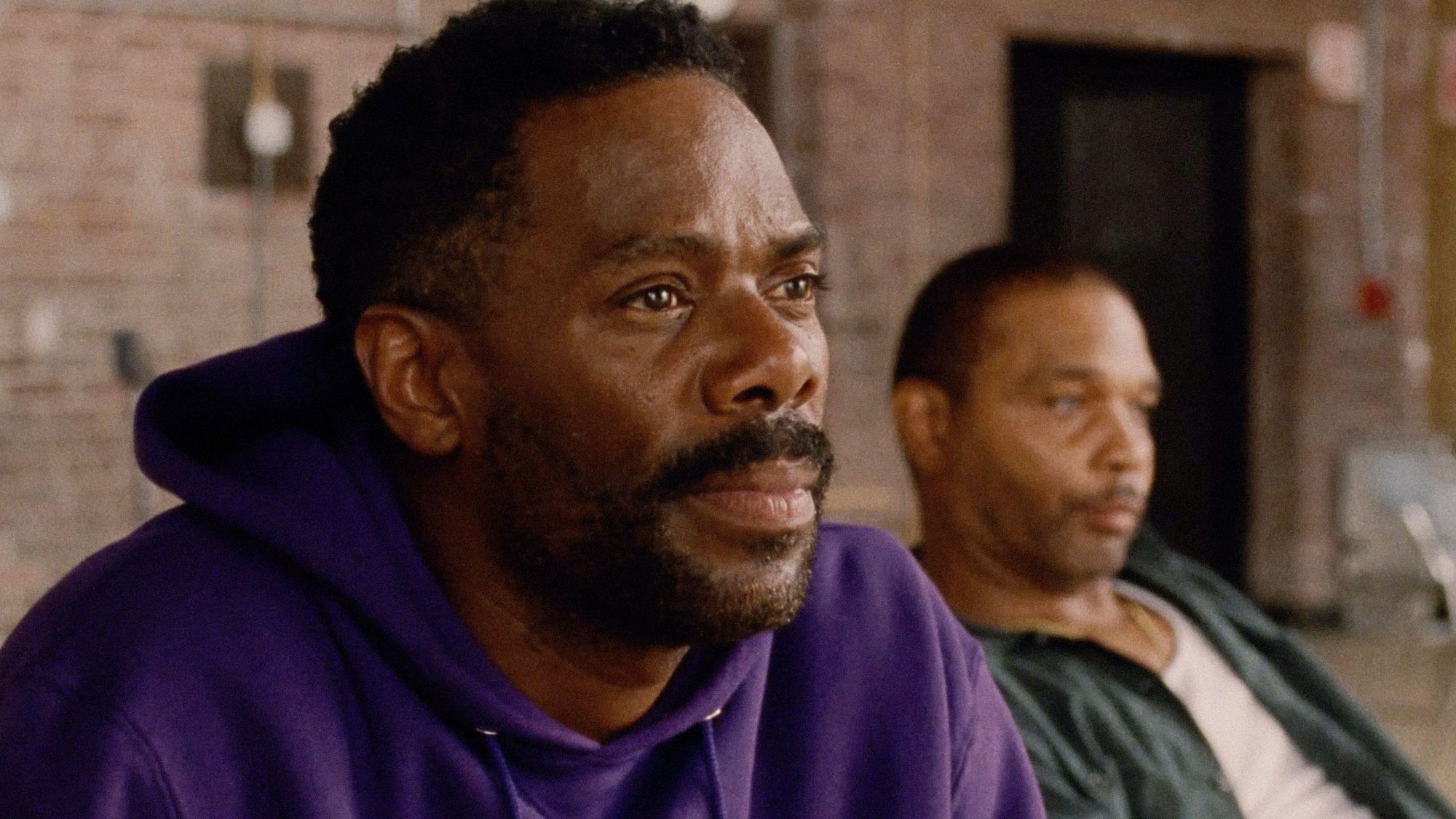 Sing Sing review: prison drama bursts with 'charm, energy and optimism'
Sing Sing review: prison drama bursts with 'charm, energy and optimism'The Week Recommends Colman Domingo plays a real-life prisoner in a performance likely to be an Oscars shoo-in
-
 Kaos review: comic retelling of Greek mythology starring Jeff Goldblum
Kaos review: comic retelling of Greek mythology starring Jeff GoldblumThe Week Recommends The new series captures audiences as it 'never takes itself too seriously'
-
 Blink Twice review: a 'stylish and savage' black comedy thriller
Blink Twice review: a 'stylish and savage' black comedy thrillerThe Week Recommends Channing Tatum and Naomi Ackie stun in this film on the hedonistic rich directed by Zoë Kravitz
-
 Shifters review: 'beautiful' new romantic comedy offers 'bittersweet tenderness'
Shifters review: 'beautiful' new romantic comedy offers 'bittersweet tenderness'The Week Recommends The 'inventive, emotionally astute writing' leaves audiences gripped throughout
-
 How to do F1: British Grand Prix 2025
How to do F1: British Grand Prix 2025The Week Recommends One of the biggest events of the motorsports calendar is back and better than ever